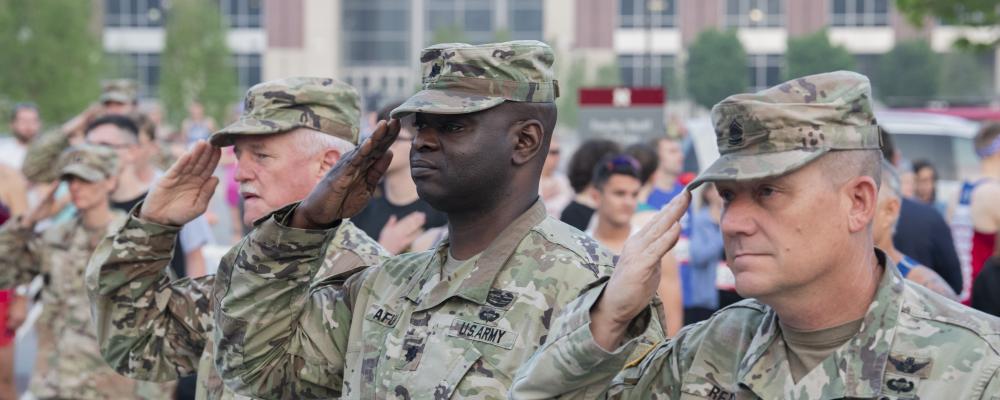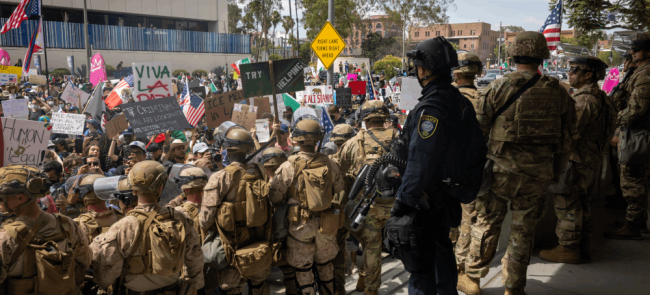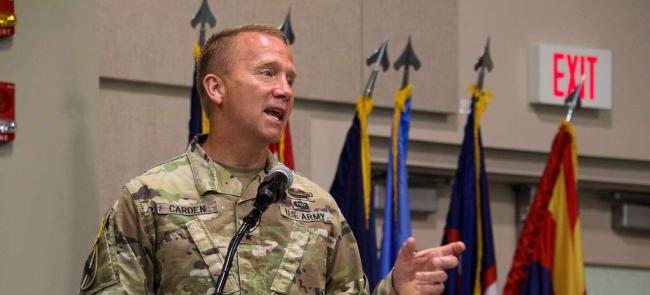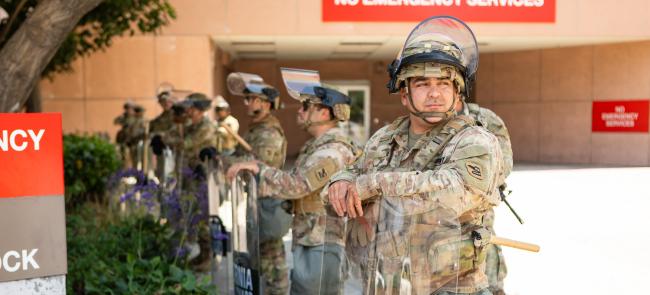
The latest front in the National Guard’s war for talent involves competing with the private sector — even the fast-food industry has record high wages — for potential service members, according to a recent National Guard Bureau media roundtable.
On Wednesday, nine Guard officials described a booming job market rife with incentives that’s challenging the service’s recruiting and retention efforts nationwide.
The group suggested the flexibility and opportunities available to today’s talent present obstacles for meeting the Guard’s end strength goals in fiscal 2023 and beyond.
"It’s Wendy’s," Command Sgt. Maj. Marco Irenze said of the companies the Nevada Guard is grappling with. "It’s Carl’s Jr."
"It’s every job a young person goes up against, because they’re offering the same incentives that we are right now," added Irenze, who serves in the Nevada Guard’s Recruiting & Retention Battalion.
With fiscal 2023 ending Sept. 30, Wednesday’s panelists admitted several major companies may stand between them and their talent objectives this year.
Senior Master Sgt. Chris Perez, the senior enlisted advisor for the Washington Air Guard’s Recruiting & Retention, listed Amazon, Microsoft and T-Mobile as regional talent rivals.
Staff Sgt. Yoon Kim, a recruiter for the Illinois Army Guard’s Woodstock Sustainment Program, cited FedEx and UPS as contestants in their area’s race for manpower.
"Competition is any civilian market, any career field," Tech Sgt. Stephen Graves, a recruiter for the Illinois Air Guard’s 182nd Airlift Wing, said.
"The opportunities for flexibility — we’re looking at changing our schedule for drill weekends," he continued.
Col. Anthony Pasquale, the chief of the Air Guard’s recruiting & retention division, said the component may fall short of its authorized end strength of 108,400 airmen this year.
"This is the most challenging recruiting environment the Department of Defense has probably ever faced," he said. "And that reaches across all the components."
"Projections for where we’ll land, we could land anywhere from 3,000-4,000 short," Pasquale noted.
According to information NGB provided from Col. Andrew Bishop, chief of the Army Guard's strength maintenance division, the Army Guard had an authorized end strength of 325,000 soldiers in the latest NDAA.
The Army Guard's current assigned strength is 325,699 troops, or 100.22% of that total.
For fiscal 2023 to date, the Army Guard has achieved 24,615 accessions out of a 25,913-accession mission, or 94.99% overall of its total.
At the end of May, the Army Guard had also enlisted 3,048 more soldiers compared to the end of May last fiscal year.
The Army Guard has additionally retained 25,352 soldiers out of a desired 37,497 to date this fiscal year for a 63.61% retention rate so far.
In May, the Army Guard had achieved 56.1% of its recruiting mission of 30,880 recruitments.
During the same period, the Air Guard had hit 61.3% of its benchmark of 6,078 airmen.
Several of the U.S. military’s top leaders have bemoaned the COVID-19 pandemic as one of the key factors behind today’s talent struggles.
While social distancing may have slowed the virus from spreading, it also closed longtime talent pipelines like high schools for recruiters.
On Wednesday, several panelists posited that the Guard has some unique characteristics that might attract future personnel.
"The relevancy of the National Guard mission is the highest it’s been in recent memory," said Col. Steve Rowe, the New York Army Guard’s chief of staff.
"We’re grassroots," said Sgt. Maj. Anthony Abbate, command sergeant major for the New York Army Guard’s Recruiting & Retention Command. "We’re from the communities that we’re living in and recruiting out of."
— By Mark Hensch












